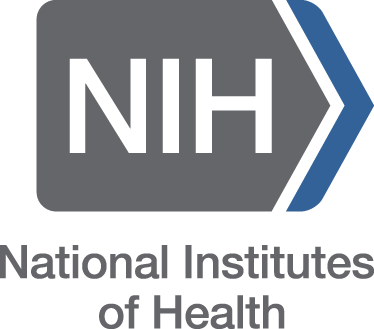Breadcrumb
- Home
- Get Help
- Newsletters
- January 2023 IRB Connection Newsletter
January 2023 IRB Connection Newsletter
Changes to HawkIRB Are Coming Soon!
Retrospective Record Reviews with Less Regulatory Burden
Make Effective Recruitment Plans – December 2022 Lecture Recap
Student PI Training Requirement: Reminder to Faculty Advisors and Student PIs
Learning Opportunity: Human Subjects Research, IRB Review Process, and HawkIRB
Reminder: Complete the Pre-Grant Submission Survey for Single IRB Model
DSP Rebroadcast: Preparing for 2023 Data Management and Sharing Policy
Medical Ethics Advisor Newsletter, December 2022
In the News
Changes to HawkIRB are coming soon!
You will notice several enhancements in HawkIRB after January 27, 2023. The first enhancement is to the acceptable document format for informed consent and recruitment materials. The second enhancement is a new question in two sections of the application about the use of protected health information (PHI).
Accepted Document Type
The first enhancement was requested by the UI research community and affects all HawkIRB forms. However, it will not require an update to IRB-approved projects. HawkIRB will now recognize either rich text format (.rtf) OR .docx files in the informed consent and recruitment categories of the attachment page. This enhanced functionality will allow the HawkIRB system to populate the IRB-approval stamp in either an .rtf or .docx file upon IRB approval. The template informed consent materials and blank stamped template are now .docx files.
Use of Protected Health Information
The second enhancement is regulatory-based and will affect all open IRB-01, IRB-03 and external IRB submissions. (This change will not affect projects approved by IRB-02.) There is a new question in two sections of the form to better track the access and use of PHI when the IRB grants a partial or full waiver of HIPAA authorization. A full waiver of HIPAA authorization is prompted in Section IV.11 for projects with a waiver if informed consent. A partial waiver of HIPAA authorization is prompted in Section VII.D.1 when a project will use protected health information to identify potential subjects for recruitment purposes.
When researchers access medical records from UI Health Care (UIHC) or the UIHC hybrid covered entities, there will be a new question with checkbox options to identify which PHI data points will be accessed, used, and/or collected as part of the research. This information is important:
- For consideration of subject identifiability and confidentiality measures
- When the IRB considers whether the full or partial waiver of HIPAA authorization criteria is met
- In the event of a breach of confidentiality
The new questions will appear on the next modification form and response will be mandatory. The response previously provided in Section IV.11 and Section VII.D.1 should be consistent with any items checked in these new questions.
Questions
If you have any questions about either of these enhancements, please contact the Human Subjects Office at irb@uiowa.edu or call (319) 335-6564.
Retrospective Record Reviews with Less Regulatory Burden
By Kelly O’Berry, BS, CIP

Retrospective record reviews qualify for Exempt status, the lowest possible level of IRB oversight. In the past, researchers requested Regular Review for this type of research in Section IV.1 and a Waiver of Consent in Section IV.3. Although that is still an option, since January 2022 there has been another option with a shorter HawkIRB application and less regulatory burden. The current New Project form for Exempt research is faster for researchers to prepare, easier for the IRB to review, and requires fewer HawkIRB submissions after IRB approval.
Exempt Research Application in HawkIRB
The Exempt form is a simplified HawkIRB application for research fitting into one of six exemption categories. This is an option for all new retrospective record reviews. In the ‘new’ Exempt form, researchers select the category (or categories) the project fits under. Retrospective record reviews typically fit under Exempt Category 4.
NOTE: Research that qualifies for Exempt status is not exempt from submitting a HawkIRB application. If the project fits into one of the six exemption categories, then it is exempt from having to follow the rest of the Federal Regulations for the Protection of Human Subjects (45 CFR 46).
The Exempt Research Application
When a researcher selects ‘Exempt review’ in Section IV.1, there are two follow up questions:
- Section IV.1.a - Screens for whether the project qualifies for exempt status, and if so, which exempt category.
- Section IV.1.b - A list of all possible exempt categories; researchers select the one(s) that apply for the project.
Based on the response to Section IV.1.b, the HawkIRB application opens sections and questions that will help the IRB confirm that the project qualifies for a particular Exempt category.
It is a simple as that to request Exempt status for a retrospective record review. It is not possible to modify a project approved prior to January 2022 to the Exempt form. However, a researcher could close a previously approved project and submit a New Project form to request Exempt status. To reduce regulatory burden, we encourage biomedical researchers to use the Exempt form for future retrospective record review submissions.
Make Effective Recruitment Plans – December 2022 Lecture Recap
By Kelly O’Berry, BS, CIP
In December 2022, staff from the Institutional Review Board (IRB) and the Institute for Clinical and Translational Science (ICTS) presented a lecture, “Make Effective Recruitment Plans: A recipe for finding study participants.” This article provides a high-level overview of the information presented. A recording of this lecture is posted in the IRB ICON Course for Researchers.

Know your Subject Population
During the planning phase for a project, learn about the subject population – demographics, past experiences, current circumstances, etc. It is essential to identify the best methods to reach your potential subjects. Use the knowledge you have about your subject population to plan messages that will be well received.
Screening BEFORE / AFTER Enrollment
Prescreening before enrollment is good for everyone. It is respectful of the time of potential subjects; saving them a trip to Iowa City or to the research clinic if they do not meet basic study qualifications. It conserves the precious time of study personnel; not to have more study visits than necessary to meet enrollment goals.
Researchers need IRB approval to use the medical record or clinic information to identify potential subjects. The IRB serves as the HIPAA Privacy Board for the institution. With proper justification in the HawkIRB application, the IRB can grant a partial waiver of HIPAA authorization for researchers to use health information to screen for study eligibility
Researchers can collect different screening information BEFORE and AFTER a subject is enrolled in the study.
Screening BEFORE consent:
- Generalized information
- Groups of medical conditions
- Birthdate/age
- Behaviors (i.e., smoking status)
Screening AFTER consent:
- Specific information
- Questions about specific diseases
- Questions about embarrassing/sensitive topics
- Illegal behaviors (i.e., underage drinking)
Researcher Responsibilities
For successful study recruitment, researchers must identify and minimize barriers to participation, such as:
- Work schedule
- Language
- Medical issues
- Mobility
- Fear
- Transportation
There are a variety of ways that researchers can minimize barriers to participation. Follow up contacts can make sure subjects heard about and understood the study. Present information in different ways to reach the intended audience. Some researchers provide mileage reimbursement, pay for parking, provide meals or vouchers, and compensation to cover subject expenses. All of these activities must be included in the budget and described in the HawkIRB application to obtain IRB approval.
IRB Approval Requirements
Researchers need a thorough, detailed recruitment plan prior to preparing the HawkIRB application. When completing the application, describe the recruitment methods in Section VII.D. Attach all necessary recruitment materials. The IRB must review the graphic design elements of posters, flyers, brochures and other printed recruitment materials.
If someone is involved in conducting study activities, they need to be named on the research team. But there is an exception for people who are just sharing basic, IRB-approved information about a study. For example, a teacher could send a recruitment flyer home with students without being named on the research team. An individual who is not named on the research team could even take the name and contact information of someone who is interested in the study and pass it along to the research team. The general rule is that if someone is telling people about a study, answering questions, and/or conducting the consent process, they need to be named on the research team. Contact the Human Subjects Office (irb@uiowa.edu) if you have any questions about whether someone helping with recruitment activities needs to be named on the research team.
The IRB does not require an IRB approval stamp on recruitment materials. However, some places require documentation of IRB approval before they will allow certain recruitment activities, including:
- Cambus posters
- Noon News announcements
- Press release through UI or UI Health Care media offices
- Mass email message sent through UI Information Technology Services (ITS)
View the recorded lecture to learn about the following recruitment scenarios and circumstances:
- VA Health Care System
- Non-English speaking subject
- Novel recruitment methods for specific subject populations
- Healthy controls
- Common diseases
- Rare diseases
Student PI Training Requirement: Reminder to Faculty Advisors and Student PIs

Graduate and Undergraduate student Principal Investigators (PIs) are required to view recorded HawkIRB trainings (Part 1 and 2) to learn how to navigate in the HawkIRB system and prepare thorough, detailed HawkIRB applications. Read more in the September 2022 IRB Connection Newsletter. Faculty Advisors and others who work with student Principal Investigators: Please make sure graduate and undergraduate student PIs know to complete this training in the IRB ICON Course for Researchers.
Learning Opportunity: Human Subjects Research, IRB Review Process, and HawkIRB
By Rachel Kinker, MPA
Do you work with or teach individuals or groups that are new to the University of Iowa or learning to conduct human subjects research? Did you know that the IRB Education & Outreach Program offers presentations on human subjects research and the IRB review process? These presentations can be given to research methods courses, journal clubs, research teams, and other groups. Read on to learn how the HSO can help you!

We can give IRB overview presentations that provide a broad overview of topics relevant for anyone who plans to conduct research themselves or work on a research team. This presentation can cover some, or all, of the following topics:
- Guidelines for human subjects research: why and when IRB approval is required
- Basic ethical principles for the conduct of human subjects research
- Student Principal Investigator (PI) training requirements
- What to expect from the IRB review process
- Research off campus or outside the United States
- Course-related student projects
Please Note: We can tailor the presentation to include an orientation to HawkIRB, focus on specific aspects of research activities that are unique to the group, or just offer an open question and answer session about the IRB and human subjects research. We will attend in person or virtually – however the group normally meets.
We recently sent an email to instructors of research-oriented courses for Spring 2023, offering to give an IRB-related presentation. If you would like an IRB presentation for your class or group, please contact us at irb-outreach@uiowa.edu.
Reminder: Complete the Pre-Grant Submission Survey for Single IRB Model

Federal agencies require the use of a single IRB (sIRB) for federally funded research conducted at multiple sites. This means one IRB oversees research conducted at some or all study sites. The budget must include the fees for this type of IRB review and there may be additional approvals and agreements for this type of research. Researchers can access information about UI IRB fees for budget planning.
For grant proposals to the National Institutes of Health (NIH) or any other federal agency that requires the sIRB model, complete the Pre-Grant Submission Survey as soon as you become aware of the award notice. Plan ahead and complete this survey well in advance, especially if the UI IRB will serve as the lead IRB or rely on an external IRB as an expectation of the grant. There are situations where the UI IRB cannot, or will not, serve as the lead/reviewing IRB (which will impact your study’s SIRB plan or budget).
If you have questions or need any assistance, contact the External IRB Team at uirb-external@uiowa.edu.
DSP Rebroadcast: Preparing for 2023 Data Management and Sharing Policy

In her newest blog post, Dr. Susan Gregurick discusses how the National Institutes of Health (NIH) Data Management and Sharing (DMS) policy will enhance data sharing, what it means for researchers, and provides resources to help navigate the changes.
Several NIH Institutes and Centers have developed guidelines and FAQs for their grantees:
- NIGMS recently issued a feedback loop blog post and has a web page with expectations for NIGMS grantees
- NCI developed guidance for their grantees
- NIA released data sharing resources for their researchers and NIA data sharing guidelines
- NIAID issued guidance for contracts under the DMS Policy
- NICHD’s Office of Data Science and Sharing compiled a list of DMS Policy Resources for their staff and Researchers
- NIDCR answered DMS Policy FAQs
- NINDS provided an interpretation of the NIH Genomic Data Sharing Policy and NINDS researcher guidance
For more information, visit the Division of Sponsored Programs NIH Data Management and Sharing website.
For Researchers in the Carver College of Medicine, The Scientific Editing and Research Communication Core (SERCC) web page about NIH Data Management and Sharing Plans has tools and resources for writing a plan. There is an additional page with templates and guidance to assist with preparing a future grant proposal. Additional information is available in the COM-Research Staff listserv post from December 20, 2022.
Medical Ethics Advisor Newsletter, December 2022
By Rachel Kinker, MPA

Medical Ethics Advisor (a publication of Relias, LLC) is a monthly newsletter with articles about human subjects research and medical ethics. Current and past issues of Medical Ethics Advisor and IRB Advisor are posted in the “IRB ICON Course for Researchers.” The portal to this ICON Course is on the Education and Training page of the Human Subjects Office website. This month we are spotlighting some articles about human subjects research from the December 2022 Medical Ethics Advisor Newsletter.
Can Interactive Tools Make Informed Consent Patient Friendly?
Large consent forms can be a deterrent for some potential participants. Interactive tools and information aids can assist in tailoring the information needs of people based on their circumstances by using a multimedia format. The terminology utilized in informed consent documents could be misleading to some potential participants, for example when an investigational drug is referred to as a ‘treatment’, people could assume that they are agreeing to receive a proven treatment. The onus is on the research team to provide information about the study that allows potential participants to make an informed decision.
Articles in the December 2022 Issue:
- Medical Crowdfunding Is Not Providing a Proper Safety Net for the Neediest Patients
- Staffing Shortages Are Hindering Clinical Trial Completion
- Ethical Concerns if Researchers Examine Opioid Use During Pregnancy
- Unused Donated Organs, Transplant Inequities Lead to Calls for Systemic Changes
- Ethical Use of Restraint Hinges on Decision-Making Capacity
- Medical Incapacity Holds Require Ethical Oversight
- Parents Struggle to Contact Ethics Consultants
- Updated Ethics Guidance on Medical Informatics
- Ethical Approaches for Accurate Patient-Reported Outcome Measures
- What Happens if Post-Approval Studies Are Delayed or Do Not Show Benefit?
- Disclosure Needed if Physicians Own Outpatient Facilities

In the News, January 2023

- The FDA no longer requires all drugs to be tested on animals before human trials, NPR
- Paying research participants-a lot-may be a key to increasing diversity in studies, STAT
- Cancer Vaccine to Simultaneously Kill and Prevent Brain Cancer Developed, Undark
- Parents in the US had alarmingly high rates of anxiety and depression during the COVID-19 pandemic-and that has a direct effect on kids, The Conversation
- Evidence showing the ‘loosening of associations’ found in schizophrenia, EurekAlert!
- Gut microbes may affect motivation to exercise, NIH